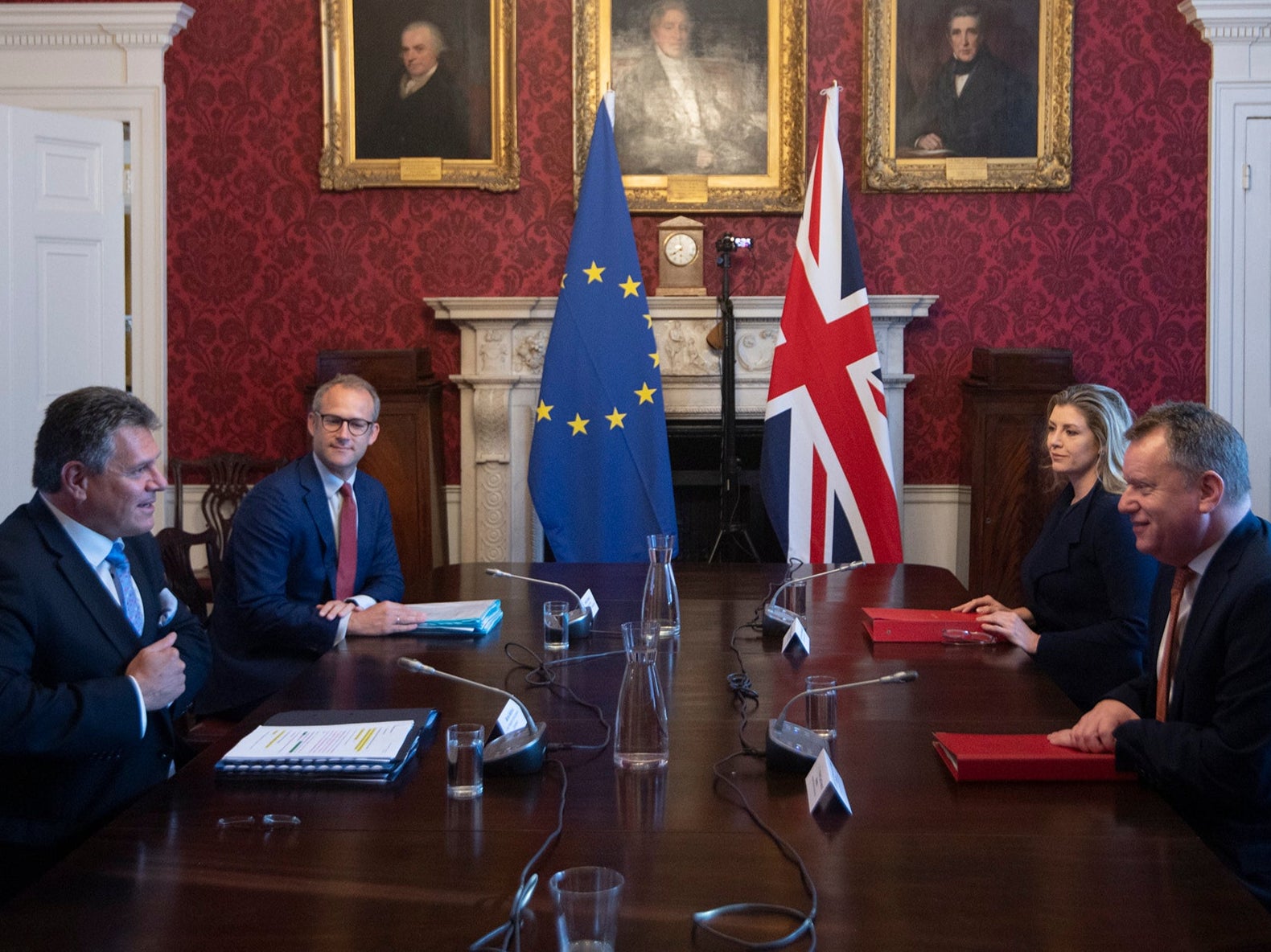Five years on from the Brexit vote – what have we learned?
John Rentoul recalls the night of the referendum and reflects on how we have ended up where we are


The night after the Brexit referendum five years ago, I had meant to watch the first few results and then get some sleep before waking early to write about the implications of the vote. Instead, when the first result was declared at one minute past midnight – Newcastle beat Sunderland in the race to count first – it was obvious that I would be staying up all night.
That first result showed a one-point lead for Remain, but what was significant was that it was a lower lead than the benchmark for a 50-50 outcome that had been calculated and published online by Professor Chris Hanretty, the statistics guru. When the Sunderland result was announced, a few minutes later, it too pointed towards a win for Leave. It could, though, have been that northeast England was unrepresentative, so the dramatic tension remained high.
By 2.16am, with early results in from all over the country, Hanretty was predicting a 97 per cent chance that Leave would win. At 3am, David Cameron decided it was all over and started writing his resignation speech. It was not until 4.39am, though, that the BBC felt bold enough to announce the result, with David Dimbleby’s historic declaration: “The decision taken in 1975 by this country to join the common market has been reversed.” On the many occasions when I have heard those words replayed I wince, because he got it wrong. The vote in 1975 was to stay in the European Community, which the UK joined in 1973.
If a messenger from the future had told me then what would happen over the next five years, I would have thought that sleep deprivation was causing hallucinations. That we would end up in a constitutional zugzwang, in which a majority in the House of Commons would pass legislation against the wishes of the government, was not something that anyone could have foreseen. Although it might just have been possible to predict that parliament would be deadlocked, having a majority against any specific form of Brexit while refusing to allow a general election to resolve the question.
And yet, there is much about Brexit that is not surprising. If people had been told, on the day after the referendum, that it would take three-and-a-half years to leave the EU and a further year before Britain actually left the European single market, that would have seemed about right. Nor should it have been surprising that the Irish border was such a difficult problem, or that Brexiters’ airy assurances about magic technology making an open border possible turned out to be bunk. Least surprising of all was that leaving the single market imposed costs on the UK, although they became evident immediately, rather than – as many economists had expected – over time.
Little that has happened in the past five years has changed minds, however. An opinion poll this week found that 11 per cent of people say they have changed their minds since the referendum. I thought this figure was surprisingly high, but the important point about it is that Remain voters were almost as likely to think that they should have voted Leave as the other way round.
It could be that the most unexpected development that might have changed minds was the success of the British vaccine programme. Partisan Remainers react touchily to this, saying that the UK was still bound by EU law when it went it alone – and it is true that there was an emergency get-out clause in EU law that was eventually used by some member states. But EU members were under political pressure to show “solidarity” by following the common approach, and EU institutions were certainly found wanting.
My unpopular opinion five years ago was that it was democratic and right to hold the referendum. It was, almost by definition, what the majority of the British people wanted. I think it would have been possible to delay a referendum if Labour had won the 2015 election, but such a government might not have lasted long, and the Conservatives would then have been led by a Leaver. So the referendum would have happened sooner or later, with the same result – or, I think, a more emphatic one.
As it was, it could be argued that a closer relationship with the EU would have been a better reflection of the narrowness of the referendum vote. I thought Theresa May’s withdrawal agreement, which would have kept the UK “temporarily” in the EU customs union, would have been the right outcome. I think Labour MPs should have voted for it, but it may not have been possible, because May would then have ended up like Ramsay MacDonald, a prime minister in a government made up largely of other parties.
The other thing I remember thinking, in the small hours of 24 June 2016, was that, once the UK was out of the EU, we wouldn’t be rejoining it for at least another generation. Again, nothing that has happened since has changed that view. Not even the Liberal Democrats are prepared to adopt an explicit policy of rejoining, while Keir Starmer has ruled out renegotiating the Brexit treaties. It may be that our relative economic underperformance in relation to the European continent will eventually prompt a rethink, as it did in the Sixties and Seventies. But that is not going to happen for ages.



Join our commenting forum
Join thought-provoking conversations, follow other Independent readers and see their replies
Comments